Our Experiential Learning Approach
ACEER’s Experiential Learning is implemented through our novel Conservation Learning Web.
Funded by National Geographic in 2018, the Conservation Learning Web is a bold, innovative educational framework that integrates six nodes of experiential learning into learning ecosystem:
- Schools and Teachers
- Out-of-school Programs
- Higher Education
- Sustainable Businesses
- Families
- Local and Global Conservation NGOs
Overall, we seek to both build and deepen student and teacher understanding of conservation and restoration in intentionally connected ways over time and across multiple settings. Through this collective impact framework, we build scientific skills and knowledge through multiple exposures and experiences. We also seek to spark and nurture young people’s interest in and enthusiasm for their local environment, while exposing young people to environmental professionals and sustainability-related education and career options. We support those under-represented in formal education in order to promote diverse and inter-related learning experiences.
Explore the nodes of ACEER’s Conservation Learning Web and Experiential Education!
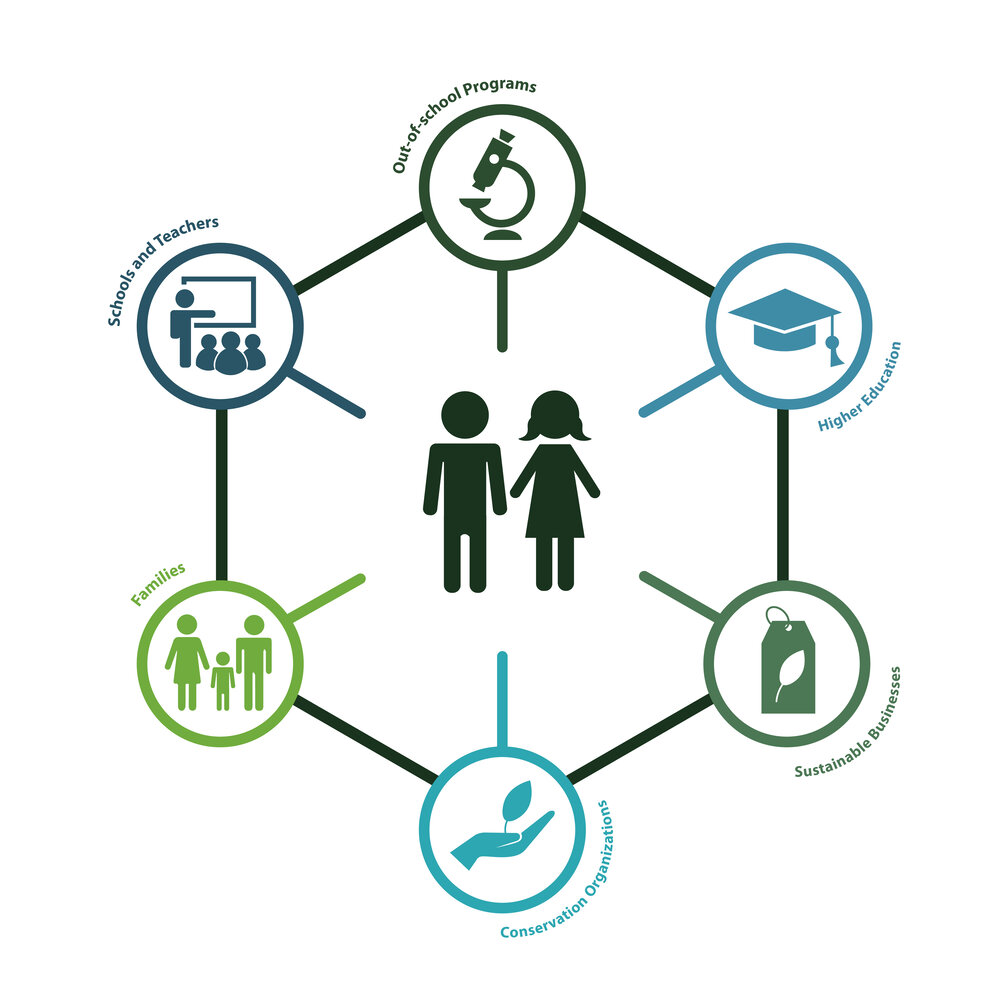
Our research profile began with the implementation of the Amazon’s first canopy walkway system, and has grown to include soil and freshwater ecology, mammal conservation, and much more. We focus on applied research questions that are grounded in ethics and address global environmental challenges.
Much of ACEER’s current field-based research takes place in the heart of the Peruvian Amazon, on the ancestral lands of the Maijuna people. ACEER’s field-based research is the result of strong institutional partnerships with OnePlanet, FECONAMAI, and other critical collaborators and funders.
Schools & Teachers
Bringing the Amazon Home is ACEER’s most recent addition to the Schools and Teachers node of the Conservation Learning Web.
We have been working closely with 15 teachers and schools from Delaware (USA) to develop bilingual K-12 curricula that not only meets the robust Next Generation Science Standards of the US education system, but also fosters mutual understanding between cultures, prioritizes conservation science, and allows teachers and students to engage directly with ACEER’s network of professionals working in the Amazon rainforest.
Learn About the Curricula that
our teacher cohort has produced
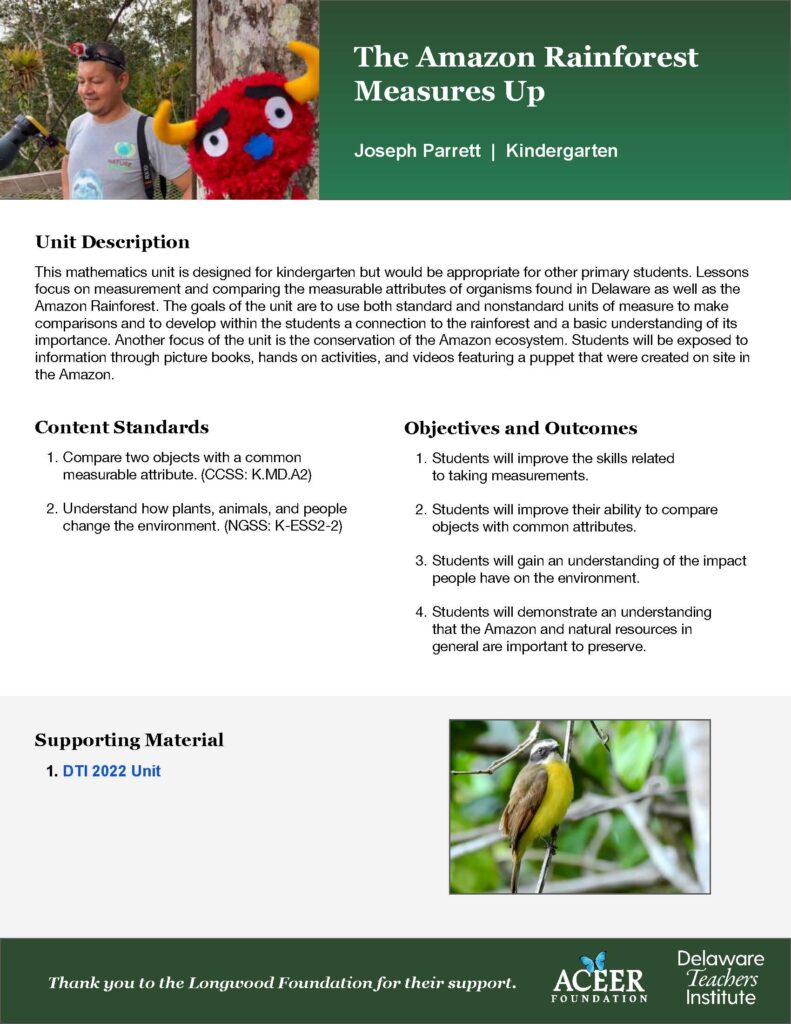
Our cohort of teachers has worked for the past several years to put together their interdisciplinary curricula, including participating in field-based experiential learning in Pennsylvania in partnership with the Lenape Indian Tribe of Delaware, and in the Peruvian Amazon in partnership with the Maijuna Community of Sucusari.
Each curriculum is accompanied by multimedia learning materials that can be implemented by teachers worldwide. Curricula span the breadth of K-12 education, including environmental sciences, sociology, math, art, and more!
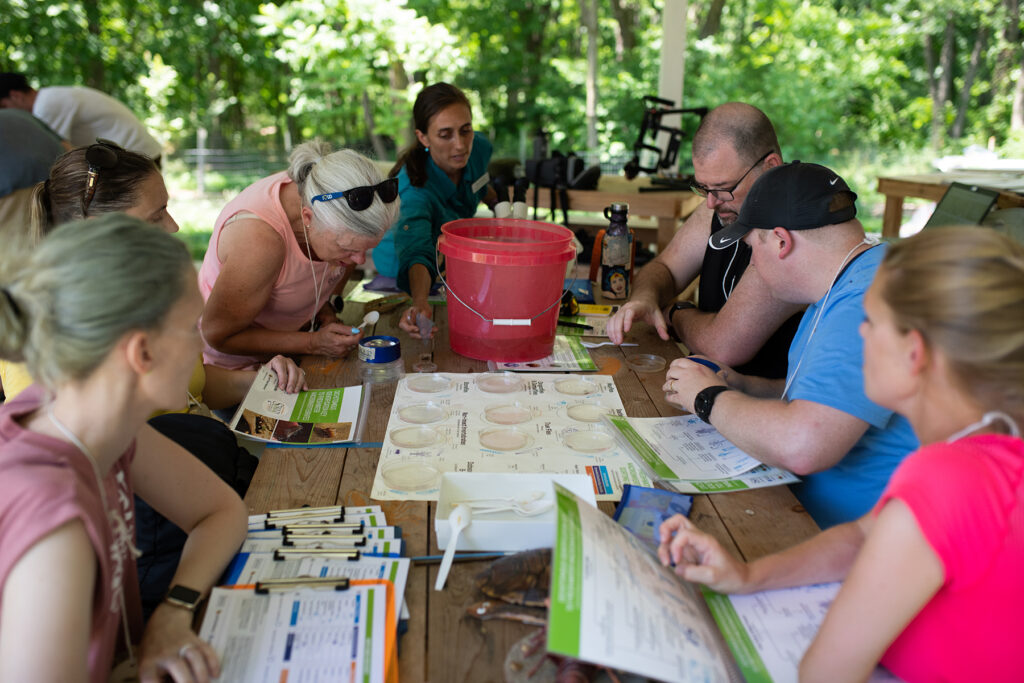
Bringing the Amazon Home is supported by strong institutional partnerships with FECONAMAI, the Lenape Indian Tribe of Delaware, The Delaware Teachers Institute, The Longwood Foundation, Delaware Department of Education, and Stroud Water Research Center, among others.
“Teachers can really benefit from sharing with their students the wonderment of plants and how diverse their usage can be – food from their fruit, and furniture from their dried leaves. Learning about the process of harvesting and using chambira palm can be super engaging, and is a great way to share culture with students. I am very thankful for the knowledge I gained from my professors in Sucusari about different plants and what their benefits are to the Sucusari community.”
~Cynthia Papettas, Middle School Teacher, Delaware
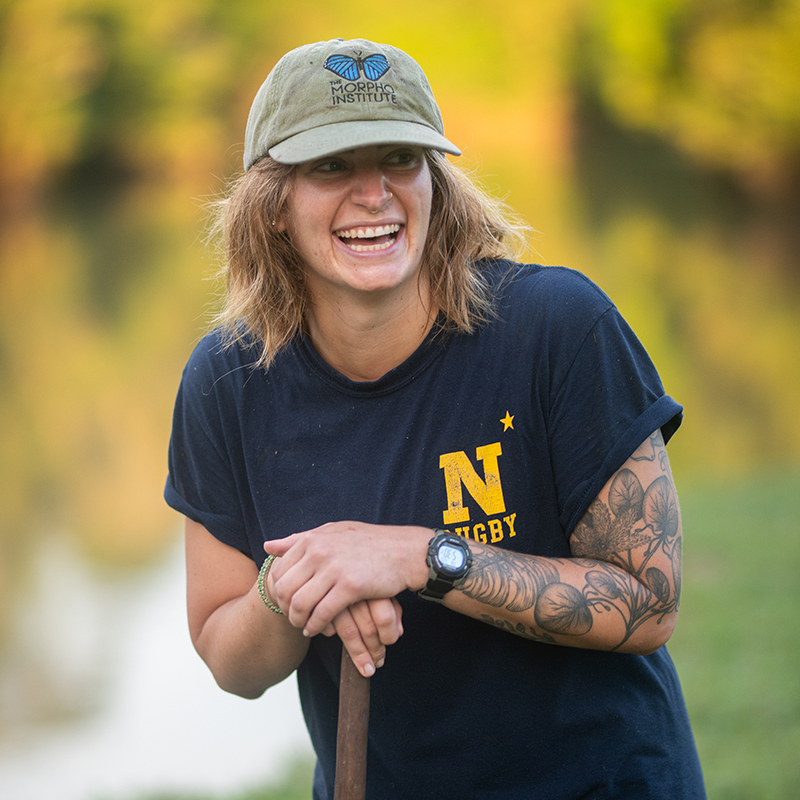
Out of School Programs
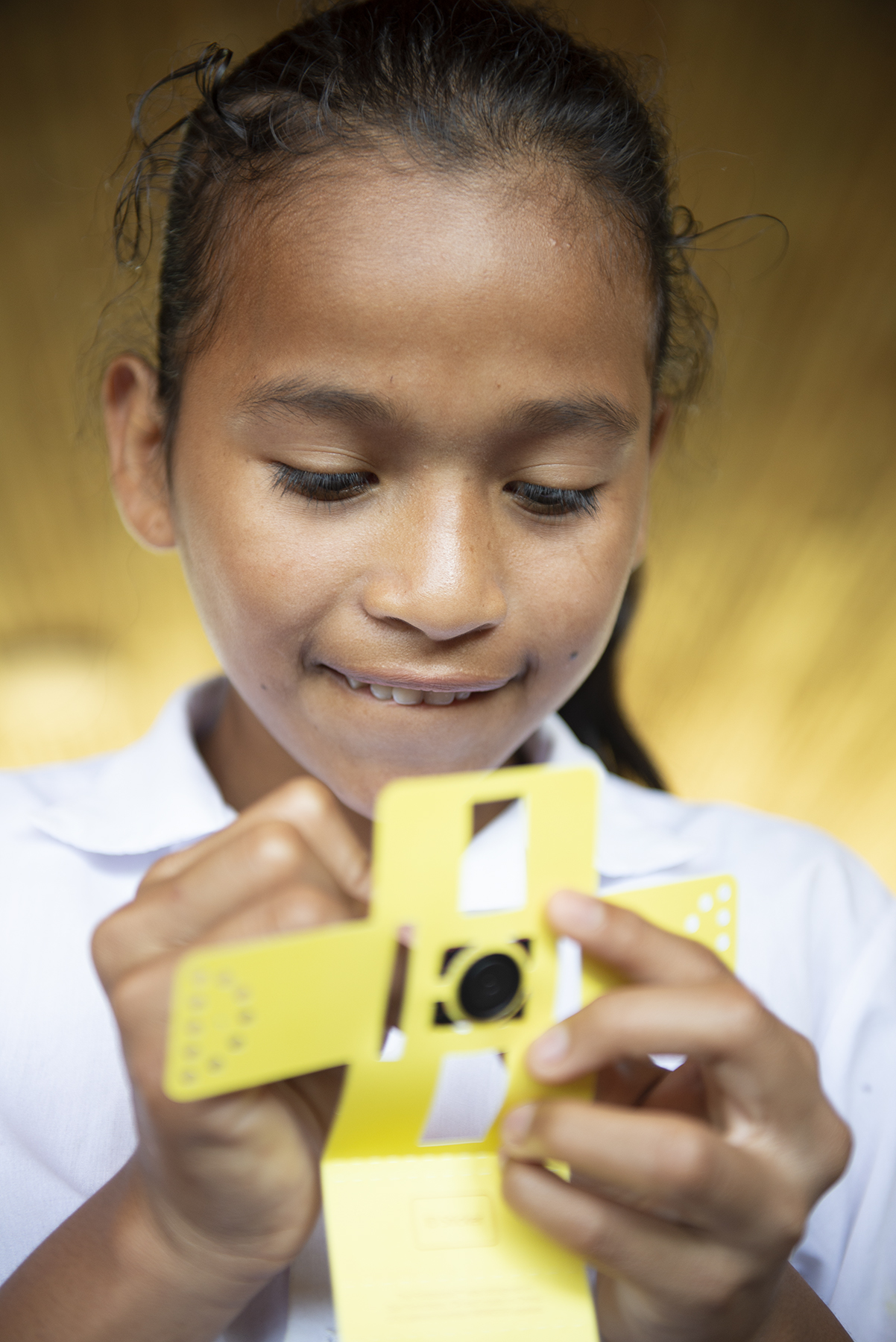
ACEER implements an enormous variety of out-of-school programs with local students in Puerto Maldonado, Peru, where our office is located, in collaboration with our partner organization Nature Explorers.
Students and teachers accompany ACEER staff and affiliates into the field to collect data, observe birds, study water quality, learn from local community experts, and more. Our office in Puerto Maldonado serves as a home base for workshops for student groups spanning topics ranging from bridging art and science through sculpture, to mutual cultural exchange.
Since the reimagining of our out-of-school programs in 2019, thousands of local students and teachers have already participated, many of whom have gone on to contribute to other nodes of the Conservation Learning Web, or to ACEER’s research programs.
Our current out-of-school programs are supported by institutional partners Nature Explorers and a variety of local communities and organizations.
Higher Education
ACEER staff and affiliates maintain connections and affiliations with a diverse array of higher education institutions. Universities offer avenues for publishing research and disseminating results, opportunities for collaboration, and networking opportunities for ACEER program participants. University students often engage with ACEER through the Conservation Leaders program or our experiential learning programs, bringing their institutions into the Conservation Learning Web.
Sustainable Businesses
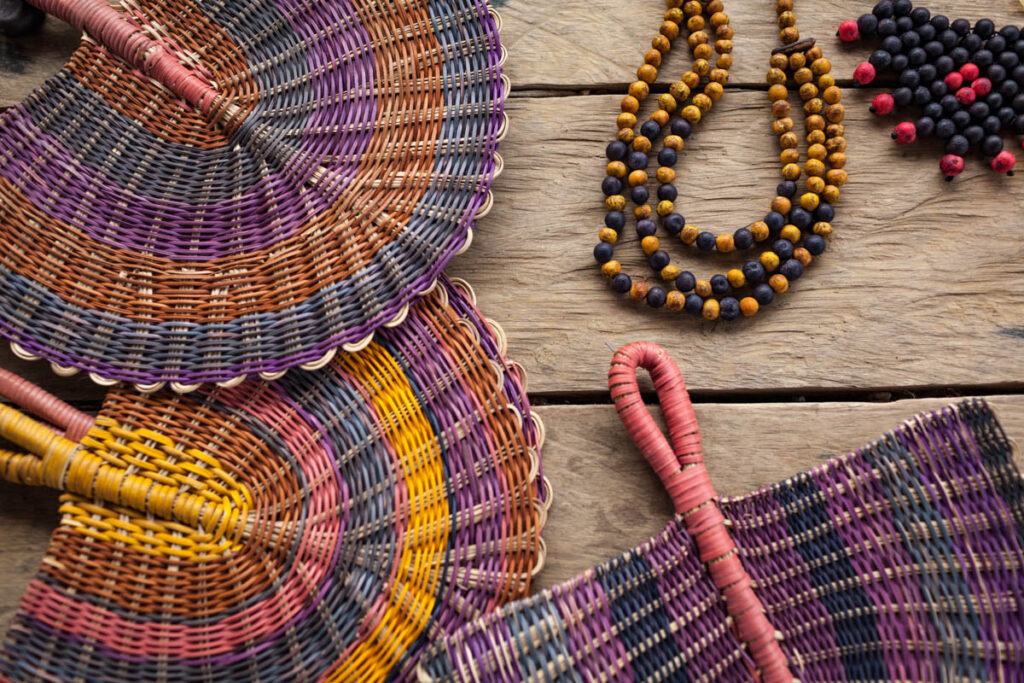
Families
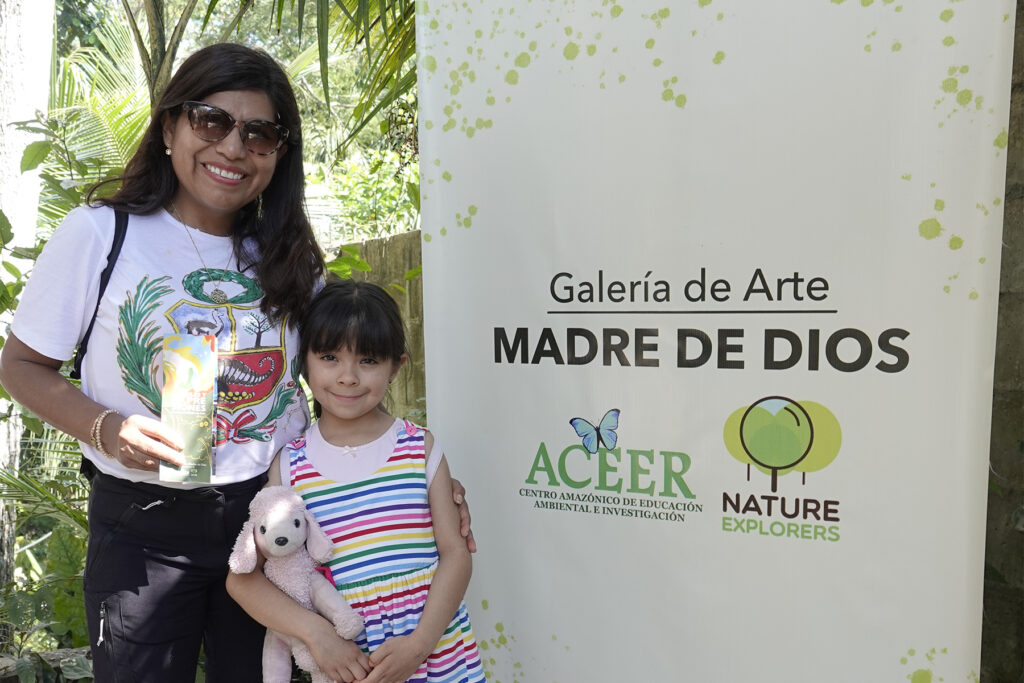
Local And Global Conservation NGOs
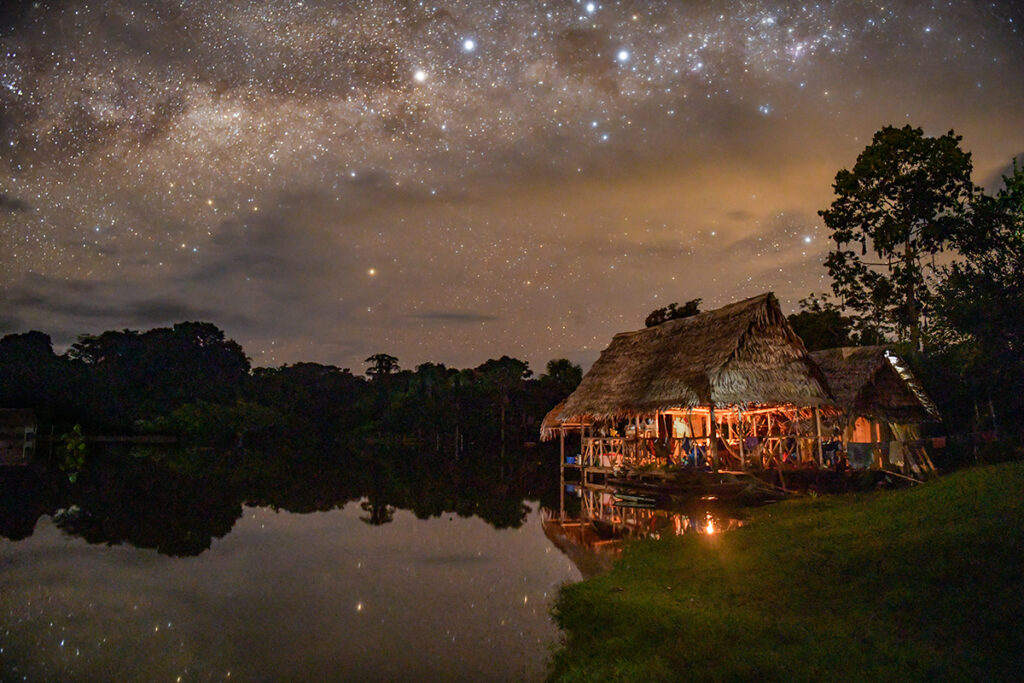
ACEER collaborates and partners with a variety of local and global conservation NGOs to conduct field research, implement education programs, and advocate for conservation. These partners also offer networking or professional development opportunities for participants in the Conservation Learning Web.
Check out some of our main NGO partners!
OnePlanet: ACEER and OnePlanet work together to conduct mammal conservation research in the northeastern region of the Peruvian Amazon. ACEER connects experts and Conservation Leaders with research objectives that are driven by local communities and organized by OnePlanet.
Alliance for a Sustainable Amazon: ACEER and Alliance for a Sustainable Amazon (ASA) work together to implement experiential education. Out-of-school programs often visit the ASA property in Madre de Dios. ASA staff and interns are often included in the Conservation Leaders program, and apply the skills they learned at ASA to new challenges. We also work together to curate the only Lepidoptera natural history collection in Madre de Dios in the ACEER office in Puerto Maldonado!
AmazonAid: ACEER and AmazonAid work together to communicate the dangers of gold mining in the Peruvian Amazon, and advocate for conservation of these degraded ecosystems. We collaborate on film series, communication materials, and the Artist in Residence program, among other things!
Nature Explorers: ACEER and Nature Explorers work together to implement out-of-school programs for local students and teachers in Madre de Dios, Peru. Local groups participate in workshops on everything from field-based research to bridging art and science to building mutual cultural understanding with local Indigenous leaders.
